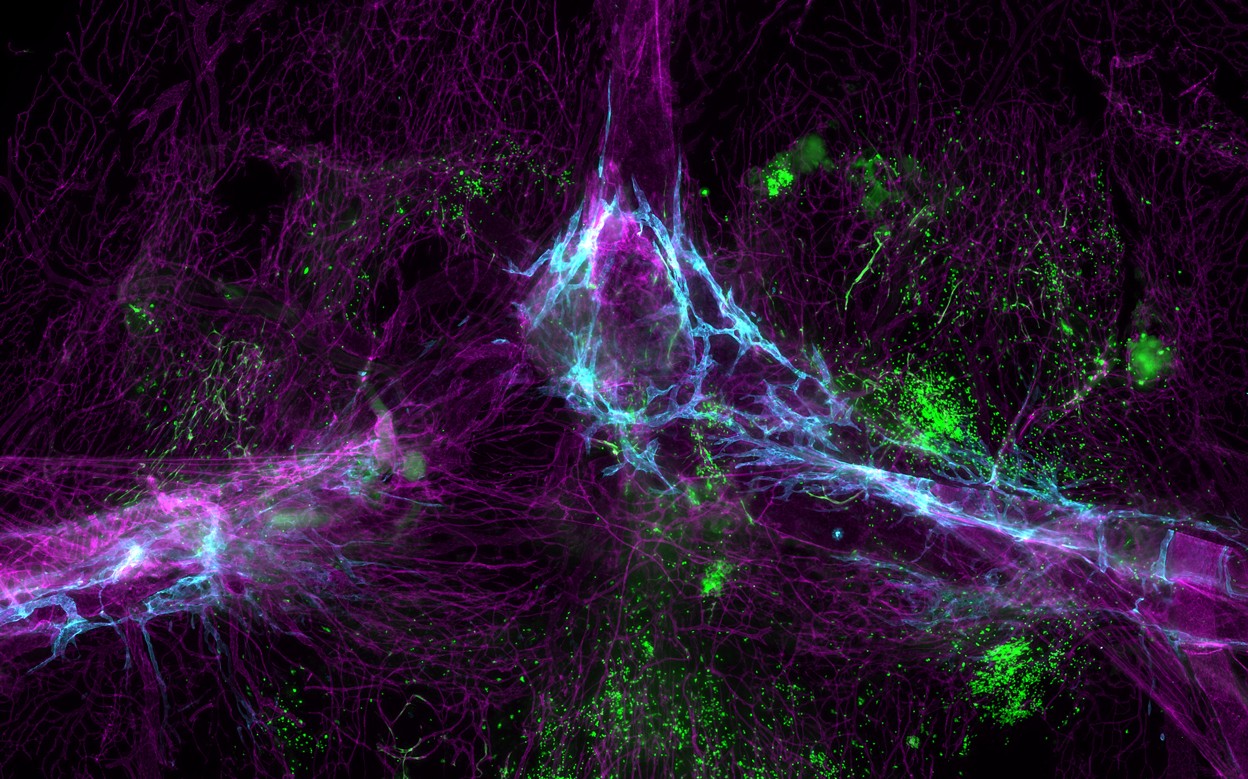Guardians of the brain: How a special immune system protects our grey matter
By Diana Kwon
The brain is the body’s sovereign, and receives protection in keeping with its high status. Its cells are long-lived and shelter inside a fearsome fortification called the blood–brain barrier. For a long time, scientists thought that the brain was completely cut off from the chaos of the rest of the body — especially its eager defence system, a mass of immune cells that battle infections and whose actions could threaten a ruler caught in the crossfire.
In the past decade, however, scientists have discovered that the job of protecting the brain isn’t as straightforward as they thought. They’ve learnt that its fortifications have gateways and gaps, and that its borders are bustling with active immune cells.
A large body of evidence now shows that the brain and the immune system are tightly intertwined. Scientists already knew that the brain had its own resident immune cells, called microglia; recent discoveries are painting more-detailed pictures of their functions and revealing the characteristics of the other immune warriors housed in the regions around the brain. Some of these cells come from elsewhere in the body; others are produced locally, in the bone marrow of the skull. By studying these immune cells and mapping out how they interact with the brain, researchers are discovering that they play an important part in both healthy and diseased or damaged brains. Interest in the field has exploded: there were fewer than 2,000 papers per year on the subject in 2010, swelling to more than 10,000 per year in 2021, and researchers have made several major findings in the past few years.
No longer do scientists consider the brain to be a special, sealed-off zone. “This whole idea of immune privilege is quite outdated now,” says Kiavash Movahedi, a neuroimmunologist at the Free University of Brussels (VUB). Although the brain is still seen as immunologically unique — its barriers prevent immune cells from coming and going at will — it’s clear that the brain and immune system constantly interact, he adds (see ‘The brain’s immune defences’).
